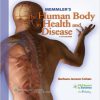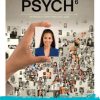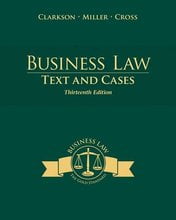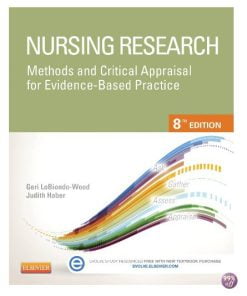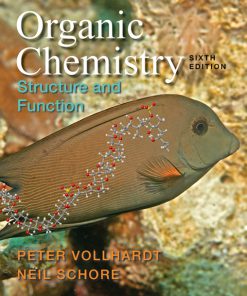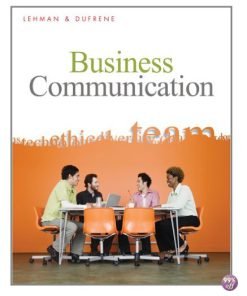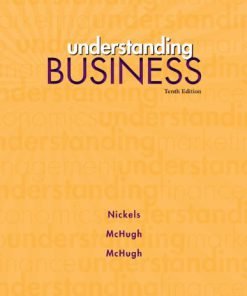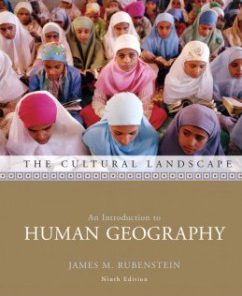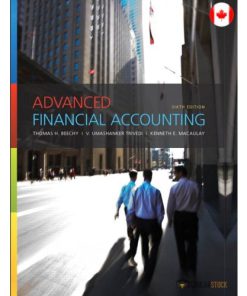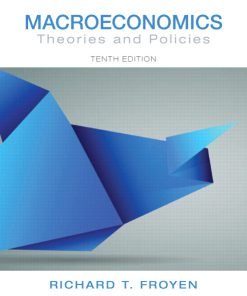Test Bank for Campbell Essential Biology with Physiology, 3rd Edition : Simon Reece
$35.00 Original price was: $35.00.$26.50Current price is: $26.50.
Test Bank for Campbell Essential Biology with Physiology, 3rd Edition : Simon Reece
This is completed downloadable of Test Bank for Campbell Essential Biology with Physiology, 3rd Edition : Simon Reece
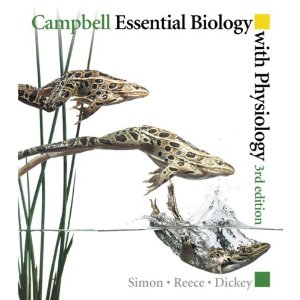
Product Details:
- ISBN-10 : 0321649540
- ISBN-13 : 978-0321649546
- Author: Simon Reece
Key Benefit: Campbell Essential Biology with Physiology, Third Edition provides essential, effective solutions to the challenges faced by instructors and their students in the non-majors biology course.
- Three features (Biology and Society, Process of Science, and Evolution Connections) found at the beginning, middle and end of every chapter give students a memorable framework to take with them into the future.
- One compelling topic anchors the three book features in each chapter to emphasize how biology is highly relevant.
- The book and the media are designed from the ground up to teach biology to a wide range of students.
- asteringBiology, our online tutorial and assessment system, makes it easy to increase student participation and accountability.
Table of Content:
Chapter 1 Introduction: Biology Today
Multiple-Choice Questions
1) In what way(s) is the science of biology influencing and changing our culture?
A) by helping us understand the relevance of evolution to human health
B) by revealing how mutations in genes can lead to disease
C) by providing new tools for forensic investigations
D) all of the above
Answer: D
Topic: 1.1 The Scope of Life
Skill: Knowledge/Comprehension
2) What is biology?
A) the scientific study of life
B) the scientific study of the environment
C) the scientific study of DNA
D) the scientific study of ecosystems
Answer: A
Topic: 1.1 The Scope of Life
Skill: Knowledge/Comprehension
3) Which of the following is not a property of life?
A) Populations of organisms rarely change over time.
B) Living things exhibit complex but ordered organization.
C) Organisms take in energy and use it to perform all of life’s activities.
D) Organisms reproduce their own kind.
Answer: A
Topic: 1.1 The Scope of Life
Skill: Knowledge/Comprehension
4) What are the two main processes that ecosystems depend upon?
A) speciation and evolution
B) nutrient recycling and energy flow
C) decomposition and nutrient recycling
D) sunlight and photosynthesis
Answer: B
Topic: 1.1 The Scope of Life
Skill: Knowledge/Comprehension
5) Which of the following is not recycled but is lost from ecosystems?
A) nitrogen
B) energy
C) magnesium
D) carbon
Answer: B
Topic: 1.1 The Scope of Life
Skill: Knowledge/Comprehension
6) Which of the following is a producer?
A) oak tree
B) earthworm
C) sun
D) cat
Answer: A
Topic: 1.1 The Scope of Life
Skill: Knowledge/Comprehension
7) Humans are ______.
A) producers
B) producers and consumers
C) consumers
D) producers and decomposers
Answer: C
Topic: 1.1 The Scope of Life
Skill: Knowledge/Comprehension
8) Which of the following structures can perform all the activities required for life?
A) DNA molecules
B) cells
C) organelles
D) nuclei
Answer: B
Topic: 1.1 The Scope of Life
Skill: Knowledge/Comprehension
9) Relative to prokaryotic cells, eukaryotic cells are usually ______.
A) larger and more complex
B) smaller and simpler
C) larger and equally complex
D) smaller and more complex
Answer: A
Topic: 1.1 The Scope of Life
Skill: Knowledge/Comprehension
10) Humans are composed of ______ cells.
A) bacterial
B) eukaryotic
C) plant
D) prokaryotic
Answer: B
Topic: 1.1 The Scope of Life
Skill: Knowledge/Comprehension
11) What name is given to the functional compartments of a cell?
A) genomes
B) nuclei
C) genes
D) organelles
Answer: D
Topic: 1.1 The Scope of Life
Skill: Knowledge/Comprehension
12) The DNA of a eukaryotic cell is found within the ______.
A) archaea
B) nucleus
C) prokaryotic cell
D) insulin
Answer: B
Topic: 1.1 The Scope of Life
Skill: Knowledge/Comprehension
13) What are eukaryotic genes composed of?
A) RNA
B) organelles
C) RNA and DNA
D) DNA
Answer: D
Topic: 1.1 The Scope of Life
Skill: Knowledge/Comprehension
14) What is a gene?
A) a type of eukaryotic cell
B) an organelle that houses DNA
C) a type of prokaryotic cell
D) a unit of inheritance
Answer: D
Topic: 1.1 The Scope of Life
Skill: Knowledge/Comprehension
15) The human genome consists of about ______ chemical letters.
A) 300,000
B) 1 million
C) 3 billion
D) 300 billion
Answer: C
Topic: 1.1 The Scope of Life
Skill: Knowledge/Comprehension
16) More than half of all known species are ______.
A) plants
B) insects
C) bacteria
D) vertebrates
Answer: B
Topic: 1.1 The Scope of Life
Skill: Knowledge/Comprehension
17) Taxonomy is the ______.
A) study of cells
B) naming and classifying of species
C) study of organisms and their interaction with the environment
D) study of genes
Answer: B
Topic: 1.1 The Scope of Life
Skill: Knowledge/Comprehension
18) How does taxonomy assist biologists?
A) by providing easily remembered scientific names for organisms
B) by categorizing diverse items into smaller and smaller numbers of groups
C) by reducing life to its smallest common denominator, the cell
D) all of the above
Answer: B
Topic: 1.1 The Scope of Life
Skill: Knowledge/Comprehension
19) Which domain(s) consist(s) of prokaryotic cells?
A) Bacteria only
B) Eukarya only
C) Archaea and Eukarya
D) Bacteria and Archaea
Answer: D
Topic: 1.1 The Scope of Life
Skill: Knowledge/Comprehension
20) Which kingdom of Eukarya consists primarily of unicellular organisms?
A) Plantae
B) Bacteria
C) Fungi
D) Protista
Answer: D
Topic: 1.1 The Scope of Life
Skill: Knowledge/Comprehension
21) A newly discovered multicellular organism obtains food by digesting dead organisms. Such an organism is most likely a member of the kingdom ______.
A) Plantae
B) Fungi
C) Protista
D) Animalia
Answer: B
Topic: 1.1 The Scope of Life
Skill: Application/Analysis
22) Members of the kingdom Plantae differ from members of the other kingdoms of Eukarya in that most members of the kingdom Plantae ______.
A) are decomposers
B) are unicellular
C) are consumers
D) produce their own food
Answer: D
Topic: 1.1 The Scope of Life
Skill: Knowledge/Comprehension
23) The branch of biology that explains both the diversity and the unity of life is ______.
A) evolution
B) microbiology
C) taxonomy
D) genetics
Answer: A
Topic: 1.2 Evolution: Biology’s Unifying Theme
Skill: Application/Analysis
24) Which of these is most closely associated with Darwin?
A) energy flow
B) ecosystem structure
C) the three domains of life
D) natural selection
Answer: D
Topic: 1.2 Evolution: Biology’s Unifying Theme
Skill: Knowledge/Comprehension
25) Which of these is required for natural selection to occur?
A) inheritance
B) unequal reproductive success
C) individual variation
D) all of the above
Answer: D
Topic: 1.2 Evolution: Biology’s Unifying Theme
Skill: Knowledge/Comprehension
26) Unequal reproductive success ______.
A) can lead to a population being less well adapted to its environment
B) increases variation
C) does not affect the frequency of expression of traits in succeeding generations of a population
D) can lead to natural selection
Answer: D
Topic: 1.2 Evolution: Biology’s Unifying Theme
Skill: Knowledge/Comprehension
27) What does adaptation mean in a biological context?
A) the way an individual’s body adjusts to its environment
B) the accumulation of favorable variations in a population over time
C) the ability of organisms to alter their appearance under changing environmental conditions
D) all of the above
Answer: B
Topic: 1.2 Evolution: Biology’s Unifying Theme
Skill: Knowledge/Comprehension
28) What accounts for the different breeds of domesticated dogs?
A) overproduction
B) natural selection
C) competition
D) artificial selection
Answer: D
Topic: 1.2 Evolution: Biology’s Unifying Theme
Skill: Knowledge/Comprehension
29) Over a span of two decades, scientists measured changes in the beak size of a population of Galápagos ground finches. This ______.
A) provided evidence of natural selection in action
B) is an example of artificial selection
C) is an example of overproduction
D) led Darwin to his theory of evolution through natural selection
Answer: A
Topic: 1.2 Evolution: Biology’s Unifying Theme
Skill: Knowledge/Comprehension
30) Science is ______.
A) the inquiry-based effort to describe and explain nature
B) the search for truth
C) an organized set of principles for how to ethically and morally behave
D) all of the above
Answer: A
Topic: 1.3 The Process of Science
Skill: Knowledge/Comprehension
31) What is the difference between discovery science and hypothesis-driven science?
A) Discovery science “discovers” new knowledge, whereas hypothesis-driven science does not.
B) Discovery science is based on deductive reasoning, whereas hypothesis-driven science is based on inductive reasoning.
C) Discovery science is mostly about describing nature, whereas hypothesis-driven science tries to explain nature.
D) Discovery science involves predictions about outcomes, whereas hypothesis-driven science involves tentative answers to specific questions.
Answer: C
Topic: 1.3 The Process of Science
Skill: Knowledge/Comprehension
32) Which of these statements is correct?
A) Scientific ideas are subjected to repeated testing.
B) Science can be used to prove or disprove the idea that deities or spirits cause earthquakes and other natural disasters.
C) Science does not require observations that other people can confirm.
D) Only discovery science can lead to important conclusions about nature.
Answer: A
Topic: 1.3 The Process of Science
Skill: Knowledge/Comprehension
33) Discovery science is primarily based on ______.
A) hypothesis testing
B) deduction
C) experimentation
D) observation
Answer: D
Topic: 1.3 The Process of Science
Skill: Knowledge/Comprehension
34) Which of these would be a valid hypothesis?
A) Human history is determined by a series of supernatural events.
B) Humans should help in the conservation of other animal species.
C) Humans are controlled by forces beyond our understanding.
D) Humans and bacteria share a common genetic code.
Answer: D
Topic: 1.3 The Process of Science
Skill: Knowledge/Comprehension
35) A hypothesis is a(n) ______.
A) tentative answer to a question
B) guess
C) observation
D) theory
Answer: A
Topic: 1.3 The Process of Science
Skill: Knowledge/Comprehension
36) You try to start your car, but it does not start. Which of these is a hypothesis?
A) My car’s battery is dead.
B) If I recharge the battery, then my car will start.
C) My car is too old to function properly.
D) What is wrong with my car?
Answer: A
Topic: 1.3 The Process of Science
Skill: Application/Analysis
37) You try to start your car, but it does not start. Which of these is a prediction?
A) My car’s battery is dead.
B) If I recharge the battery, then my car will start.
C) My car is too old to function properly.
D) What is wrong with my car?
Answer: B
Topic: 1.3 The Process of Science
Skill: Application/Analysis
38) Which of the following are the proper components of the scientific method?
A) experiment, conclusion, application
B) question, observation, experiment, analysis, prediction
C) observation, question, hypothesis, prediction, experiment, results, conclusion
D) observation, question, opinion, conclusion, hypothesis
Answer: C
Topic: 1.3 The Process of Science
Skill: Knowledge/Comprehension
39) In a scientific experiment, the control group ______.
A) serves as a basis of comparison with the experimental group
B) is subjected to the factor whose effect is being tested
C) allows for the simultaneous testing of multiple variables
D) is required for the validity of discovery science
Answer: A
Topic: 1.3 The Process of Science
Skill: Knowledge/Comprehension
40) How do hypotheses differ from theories?
A) Theories are more comprehensive than hypotheses.
B) Theories must be testable; hypotheses do not need to be testable.
C) Hypotheses are educated guesses, and theories are tentative explanations.
D) Hypotheses are derived from experimentation, whereas theories are derived from observation.
Answer: A
Topic: 1.3 The Process of Science
Skill: Knowledge/Comprehension
People Also Search:
campbell essential biology with physiology 3rd edition
campbell essential biology with physiology
campbell essential biology with physiology 3rd edition simon reece
campbell essential biology with physiology 3rd edition download scribd
campbell essential biology with physiology 3rd edition test bank download pdf


